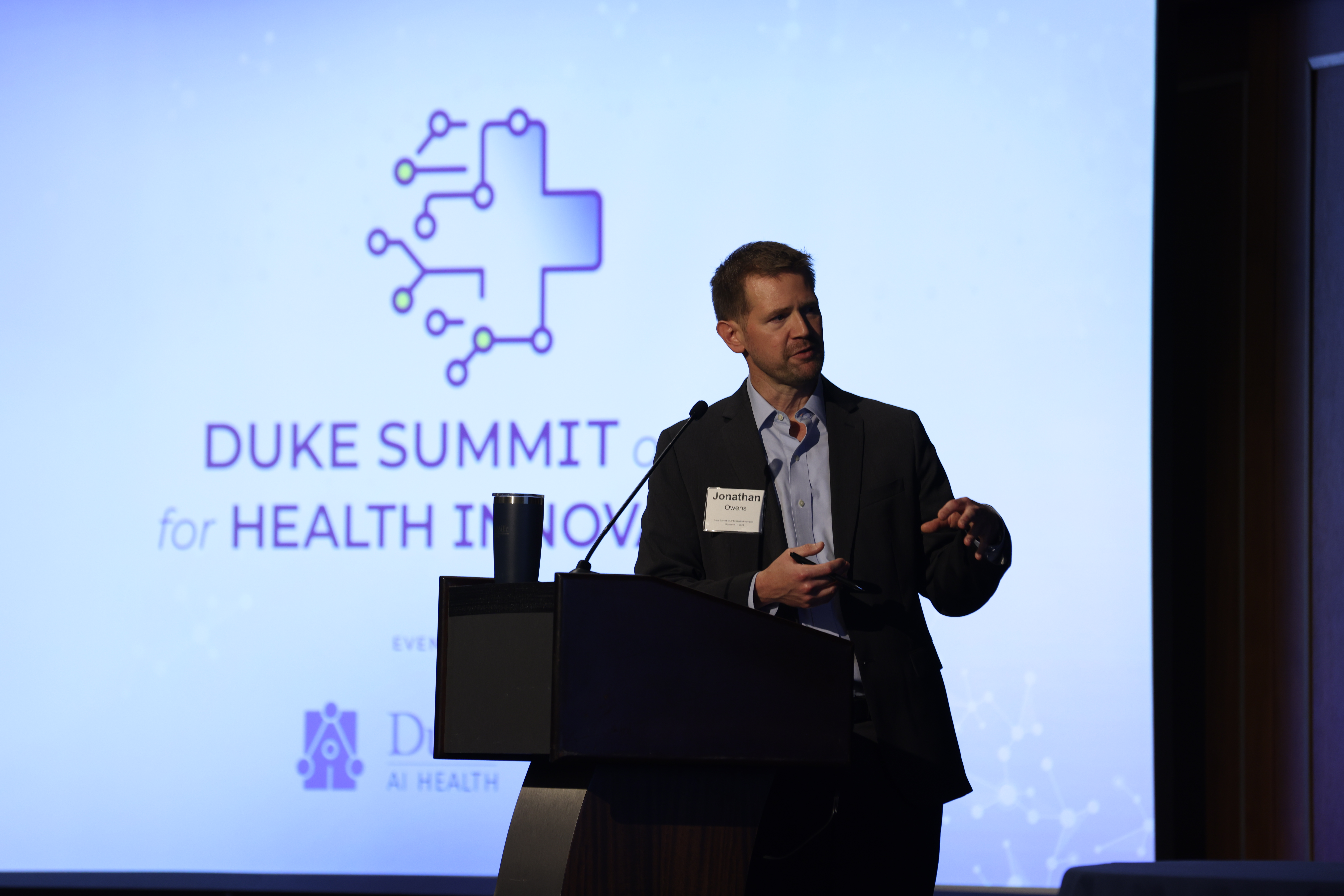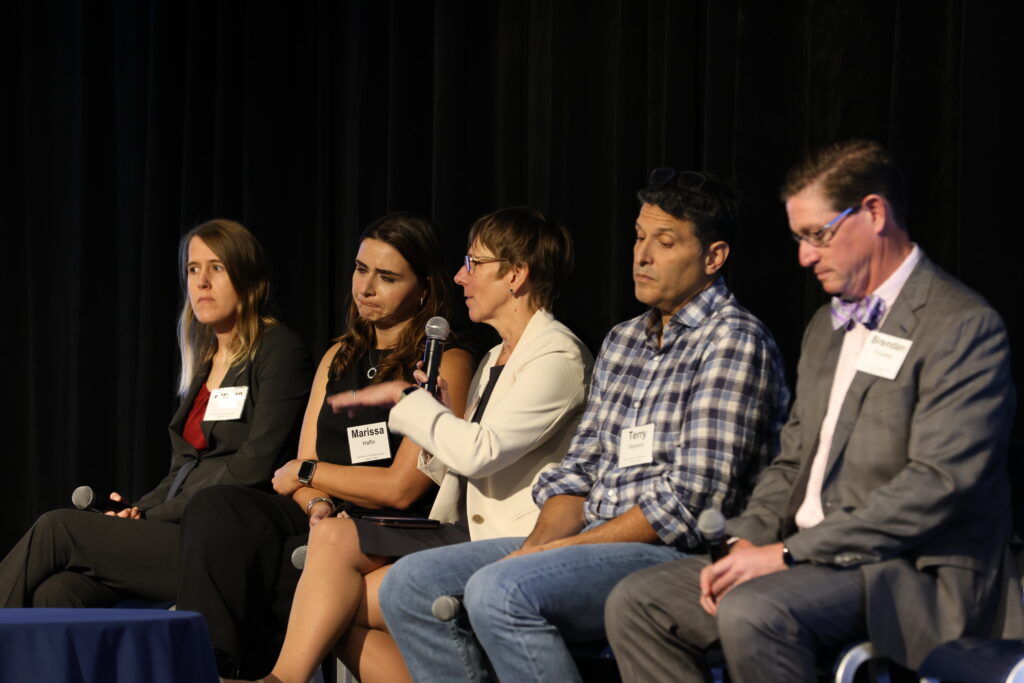
Unveiling the AI Revolution in Healthcare and Beyond
 Innovative solutions discussed at the Duke Summit on AI for Health Innovation.
Innovative solutions discussed at the Duke Summit on AI for Health Innovation.
In recent years, artificial intelligence (AI) has woven itself into the fabric of everyday life, especially through the impact of Large Language Models (LLMs) on various sectors. Notably, healthcare is on the verge of a transformation powered by AI solutions that promise to enhance efficiency and improve patient outcomes. During the Duke Summit on AI for Health Innovation, healthcare professionals, engineers, and industry leaders convened to explore emerging opportunities for integrating AI technologies into medical practices.
The AI Landscape: From ChatGPT to Clinical Trials
Since the release of ChatGPT, AI technologies have proliferated throughout numerous industries. Today, LLMs are not just confined to casual interactions but are leading discussions about their potential in high-stakes environments like healthcare. While the sophistication of these models allows for the extraction and synthesis of information from extensive datasets, they are not without flaws. Challenges such as misinterpretation of nuance or context—termed as “hallucinations”—can have serious implications in medical environments.
Although these technical barriers do exist, healthcare providers remain steadfast in their pursuit of utilizing AI. Rick Shannon, chief medical officer for Duke University Health System, conveyed a sense of urgency regarding the integration of AI in healthcare, stating, “We need a sense of urgency in bringing forward these capabilities in health care delivery. But this is not about replacing people and jobs. This is an opportunity, out of the gate, to eliminate defects, errors, and waste.”
 Rick Shannon emphasizes the need for urgent AI integration in healthcare.
Rick Shannon emphasizes the need for urgent AI integration in healthcare.
The potential applications of AI in healthcare are numerous, ranging from automating administrative tasks to aiding in clinical decision-making. However, as Shannon pointed out, this technology offers a means to enhance, rather than replace, the human elements entrenched in patient care.
The Role of AI in Healthcare Transformation
Healthcare faces unique challenges, including mounting costs, inefficiencies, and the need for better patient outcomes. AI can provide powerful solutions to these persistent issues. For example, by leveraging AI’s capability to analyze vast amounts of patient data, healthcare providers can tailor treatments more effectively and improve clinical workflows.
Yet, the successful implementation of AI in healthcare requires not just technological solutions but also strong governance frameworks to ensure adherence to regulatory standards. The Duke Summit highlighted that effective collaboration among healthcare professionals and technology providers is essential for AI to be fully operational and beneficial in clinical settings. The governance program already established at Duke is exemplary, aiming to speed up the process from ideation to deployment of AI solutions.
FDA’s Regulation of AI in Healthcare
As AI technologies continue to advance, regulatory bodies such as the U.S. Food and Drug Administration (FDA) are taking a close look at how to manage these innovations in the medical sector. In a recent special communication published in JAMA, FDA Commissioner Robert Califf outlined the top concerns and considerations surrounding AI in healthcare. Among the key points was the necessity for an adaptive regulatory framework that evolves alongside the technology.
FDA officials are particularly focused on ensuring that AI models are developed transparently, enabling clinicians to understand and trust the recommendations made by these systems. This is especially crucial as AI’s capacity to affect clinical decision-making and treatment options grows.
 Experts discuss the future of AI in healthcare during a panel session.
Experts discuss the future of AI in healthcare during a panel session.
The FDA’s focus includes the importance of life cycle management for AI systems, indicating that ongoing performance monitoring is essential. The risks involved with deploying unmonitored AI could be significant, making it imperative for continuous evaluation of AI tools in clinical settings.
Navigating AI’s Challenges and Opportunities
The complexities of implementing AI into healthcare are myriad, but they are not insurmountable. The dialogue at the Duke Summit underscored a primary theme: the demand for AI solutions that effectively address real-world issues faced by clinicians. One growing area of exploration is the ability of AI to streamline processes and help manage patient information across various platforms, aiding in tasks such as electronic health record (EHR) management and data analysis.
Moreover, the FDA outlined ten crucial areas of concern related to AI in healthcare regulation. This includes ensuring compatibility with global regulatory standards and understanding the diverse applications of AI in drug development and clinical research. Here are some pivotal points emphasized by the FDA:
- AI’s Role in Drug Development: AI technologies hold great promise for enhancing drug discovery, participant recruitment for clinical trials, and improving post-market surveillance processes.
- Collaboration Among Stakeholders: Building successful AI applications requires synergy between tech developers and healthcare professionals to ensure the resulting products are both safe and effective.
The Path Forward
As the healthcare sector grapples with the practicalities of integrating AI, the focus must remain on collaboration, transparency, and safety. The vision shared at the Duke Summit places value on human insights combined with AI capabilities to drive innovative healthcare solutions. The resulting partnerships could define the future of medical technology, improving outcomes for patients across the spectrum of care while ensuring that ethical considerations and regulatory frameworks keep pace with the accelerating rate of change.
 The innovative technologies discussed at the Duke Summit promise to revolutionize healthcare delivery.
The innovative technologies discussed at the Duke Summit promise to revolutionize healthcare delivery.
Ultimately, the challenge will center on balancing the benefits of using AI against the traditional structures that govern healthcare delivery. Fostering a healthcare landscape enriched with AI is not just about technology; it is about integrating these advancements into the very essence of patient care—making it more accessible, responsive, and human-centered.
Conclusion
AI’s integration into healthcare represents not just a technological evolution but a transformative approach that could redefine patient-provider interactions. By embracing this change with open arms and a mindful eye on regulations and ethical implications, the healthcare sector stands at the forefront of what may be the most significant shift in medical practice in decades.
As the dialogues surrounding AI continue, only through deliberate and thoughtful action can we harness its full potential for the betterment of health worldwide.















